![]()
![]()
![]()
Combine the academic excellence with the flexibility to choose the most relevant modules for your professional development.
With our Tailored Program in Intercultural Communication, you can select the most relevant modules for your career, including those in Thailand, Lebanon, and Europe, with three options:
Diploma of Advanced Studies in Intercultural Communication | DAS – 30 ECTS
Choose 8 among 18 modules corresponding to 4 weeks of study and a Thesis/Field Project;
Choose 12 among 18 modules corresponding to 6 weeks of study.
Certificate of Advanced Studies in Intercultural Communication | CAS – 15 ECTS
Choose 4 among 18 modules corresponding to 2 weeks of study and a Thesis/Field Project;
Choose 6 among 18 modules corresponding to 3 weeks of study.
Certificate of Attendance for Single Modules
Students who attend one or more modules from the diploma will receive a Certificate of Attendance for each module completed, carrying the corresponding ECTS.
* The modules in Thailand and Lebanon are not mandatory.
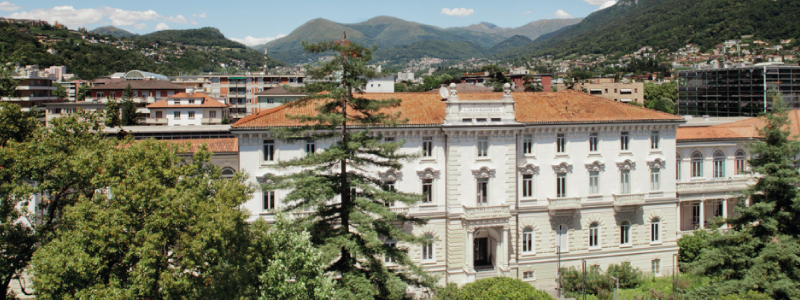
PROGRAM STRUCTURE
Each module is structured in three parts:
Face-to-face instruction
The main part of each module will be taught face-to-face over three days of intensive instruction (22 hours course work plus 2 hours of Intercultural Atelier).
Preparation
The individual preparation for each module, to be done before classroom instruction, consists mainly of reading and analyzing documents (articles, websites, etc.). All preparatory materials are available in advance on the e-learning platform reserved for participants.
Certification paper
The evaluation of students' performance for each module is based on an academic assignment. This work has to be prepared by the student at home and has to be sent by email by the deadline set by the Academic Director. Participants usually have between 6-8 weeks to complete their certification paper.
Each of the first 18 modules of the master is structured in the graphic below.
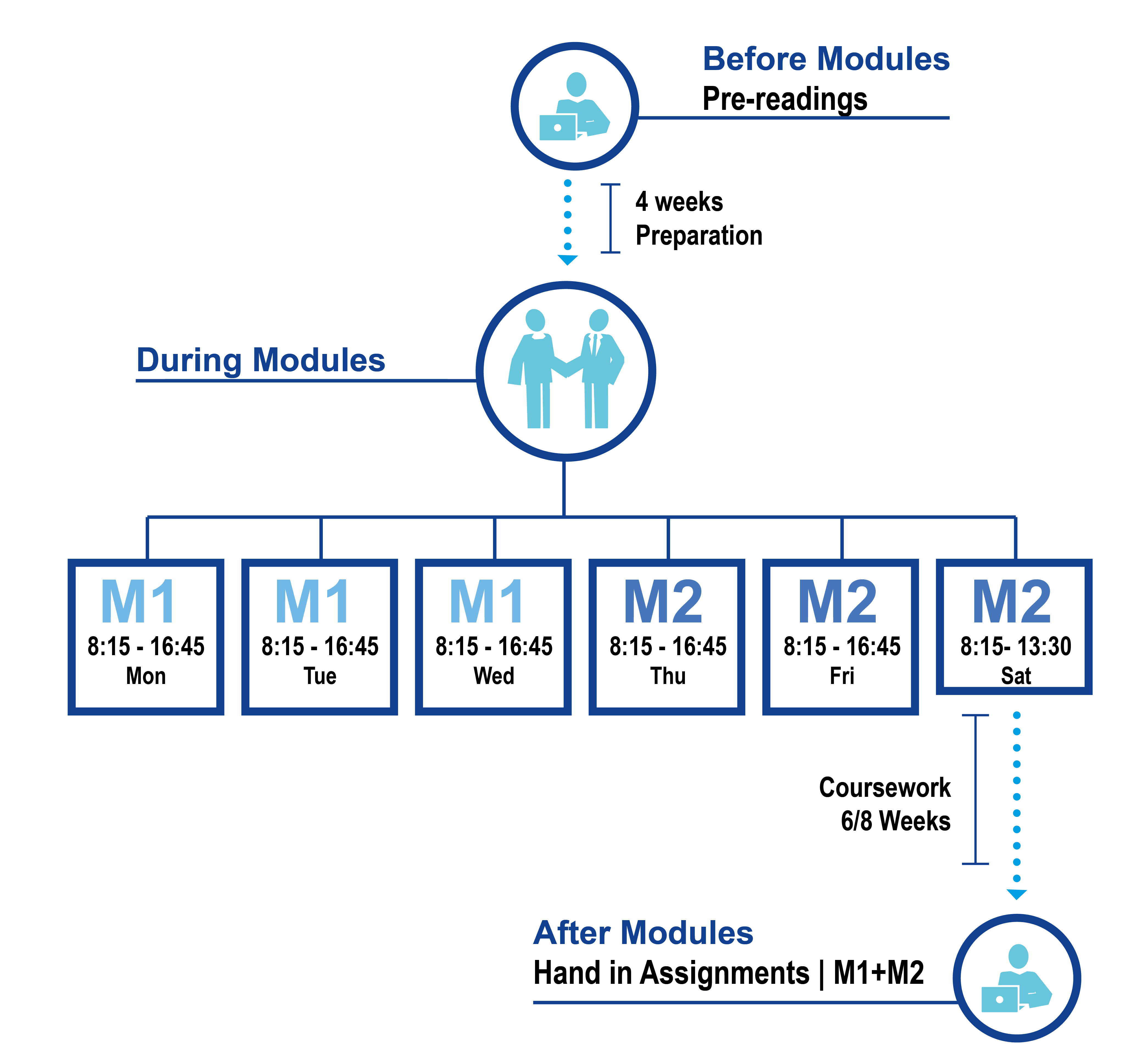
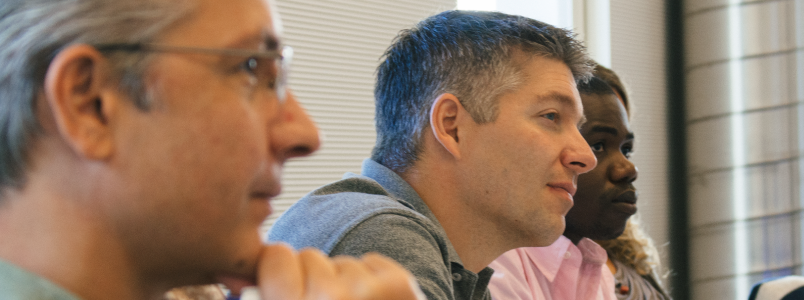
MODULES
_______________________________
Week 1 | Lugano, Switzerland
 Interdisciplinary Theory of Intercultural Communication
Interdisciplinary Theory of Intercultural Communication
An interdisciplinary theoretical framework for understanding how culture and cultural differences shape interpersonal, intergroup, and mediated communication. You will be introduced to concepts of culture, communication, and identity. The module will outline principles for inclusive communication with Others based on recognition of differences, privileges, and disadvantages.
Objectives To understand issues pertaining to cultural differences;
To understand issues pertaining to cultural differences; To perceive the enrichment that diversity offers;
To perceive the enrichment that diversity offers; To develop skills for engaging with cultural Others;
To develop skills for engaging with cultural Others; To comprehend how culture shapes communication;
To comprehend how culture shapes communication; To acquire analytical skills to diagnose problems, and design creative plans for inclusion and enrichment.
To acquire analytical skills to diagnose problems, and design creative plans for inclusion and enrichment.
Topics Theoretical framework;
Theoretical framework; Principles for inclusive communication with Others based on recognition of differences, privileges, and disadvantages;
Principles for inclusive communication with Others based on recognition of differences, privileges, and disadvantages; Why groups and individuals disagree about their meaning or how to resolve them;
Why groups and individuals disagree about their meaning or how to resolve them; Integration of migrants;
Integration of migrants; Relationships in multicultural environments.
Relationships in multicultural environments.
 |
Jolanta Drzewiecka |
_______________________________
Week 2 | Lugano, Switzerland
 Difference, Meaning, and Communication: Semiotic Approaches
Difference, Meaning, and Communication: Semiotic Approaches
This module will present theoretical concepts and methods for analyzing how meanings are constructed linguistically and visually in interpersonal and mediated communication. Let us follow Gumperz’ argument that "conversational interpretation is cued by empirically detectable signs, contextualization cues, and that the recognition of what these signs are, how they relate to grammatical signs, how they draw on socio-cultural knowledge and how they affect understanding, is essential for creating and sustaining conversational involvement and therefore to communication as such" (1992, 42). Acknowledging that context can be co-constructed by the persons involved, we will work on the analysis of intercultural interpersonal communication.
Objectives To investigate contexts and processes of intercultural (interpersonal) communication;
To investigate contexts and processes of intercultural (interpersonal) communication; To critically analyze and expertise signs (in intercultural communication situations) with respect to its modes of interpretation;
To critically analyze and expertise signs (in intercultural communication situations) with respect to its modes of interpretation; To propose adequate interventions within organizations or enterprises where intercultural encounters play a role;
To propose adequate interventions within organizations or enterprises where intercultural encounters play a role; To analyze, deploy and create visuals in intercultural settings, by consciously leveraging the universal advantages of visual mapping for intercultural communication, while being aware of the cross-cultural variations in their interpretation.
To analyze, deploy and create visuals in intercultural settings, by consciously leveraging the universal advantages of visual mapping for intercultural communication, while being aware of the cross-cultural variations in their interpretation.
Topics Detailed linguistic analysis of signs and symbols in intercultural communication;
Detailed linguistic analysis of signs and symbols in intercultural communication; Construction of otherness and difference;
Construction of otherness and difference; Cross-cultural variations in interpretation of visual communication;
Cross-cultural variations in interpretation of visual communication; Practical applications to facilitating intercultural communication.
Practical applications to facilitating intercultural communication.
 |
Sabrina Bresciani |
 |
Bernd Müller-Jaquier |
 Intercultural Training and Education
Intercultural Training and Education
The plea of intercultural education is to « take culture seriously in education »: what should this mean for intercultural education? Why are school systems so weak in promoting the school success of students from minority groups? How far are teachers competent to acknowledge cultural diversity, to address the needs of students with diverse cultural references and diverse experiences? What difficulties do teachers encounter in teaching a diverse class, what difficulties do teachers’ trainers experience in preparing teachers for interculturality? After identifying the different facets of the cultural dimension of education, we will critically consider what has been accomplished by intercultural education so far.
Objectives To reach a more comprehensive understanding of intercultural education, addressing all the facets of the cultural dimension of education;
To reach a more comprehensive understanding of intercultural education, addressing all the facets of the cultural dimension of education; To provide students with an overview of issues concerning worldwide multiculturalism and cultural diversity;
To provide students with an overview of issues concerning worldwide multiculturalism and cultural diversity; The students will acquire knowledge of the theories and practices used in multicultural education in different national contexts;
The students will acquire knowledge of the theories and practices used in multicultural education in different national contexts; To explore the critical views of both intercultural and multicultural education with similarities and differences examined;
To explore the critical views of both intercultural and multicultural education with similarities and differences examined; To define and explicate approaches to the training of intercultural competence, with a focus on distinguishing those based on cross-cultural psychology and intercultural communication.
To define and explicate approaches to the training of intercultural competence, with a focus on distinguishing those based on cross-cultural psychology and intercultural communication.
Topics Intercultural education in schools: consequences for training of teachers;
Intercultural education in schools: consequences for training of teachers; University mobility: multiculturality or uniformization: implications for didactics;
University mobility: multiculturality or uniformization: implications for didactics; Mono- ou intercultural approaches in educational policies;
Mono- ou intercultural approaches in educational policies; Education and intercultural competence training;
Education and intercultural competence training; New media, social networks, cultures and «sub-cultures».
New media, social networks, cultures and «sub-cultures».
 |
Akkari Abdeljalil |
 |
Pia Stalder |
_______________________________
Week 3 | Bangkok, Thailand
 Business, Markets, and Human Resources
Business, Markets, and Human Resources
The impact of culture at the level of the individual, the team, and the organization. This module aims to provide a comprehensive understanding of the issues involved in cross-cultural management. It will focus on the impact of culture at the level of the individual, the team, and the organization; it will demonstrate how cultural factors influence behaviors in the workplace and will develop some of the skills needed to manage effectively in cross-cultural situations.
Objectives Gain an in-depth understanding of the nature of culture, the theories and frameworks that help in highlighting similarities and differences across cultures, and comparative business practices and behaviors;
Gain an in-depth understanding of the nature of culture, the theories and frameworks that help in highlighting similarities and differences across cultures, and comparative business practices and behaviors; Be able to apply these theories and concepts to a range of different cultural and organizational settings;
Be able to apply these theories and concepts to a range of different cultural and organizational settings; Be able to analyze and synthesize different theories and concepts and critically evaluate their usefulness in addressing the problems of managing people from different cultures;
Be able to analyze and synthesize different theories and concepts and critically evaluate their usefulness in addressing the problems of managing people from different cultures; Improve your ability to work in, manage and lead culturally diverse groups and teams;
Improve your ability to work in, manage and lead culturally diverse groups and teams; Increase your awareness of the economic, social, political and ethical issues related to globalization.
Increase your awareness of the economic, social, political and ethical issues related to globalization.
Topics Business organization/management and multiculturality:
Business organization/management and multiculturality: Basic value orientations and frameworks of cultural dimensions;
Basic value orientations and frameworks of cultural dimensions; Organisational culture;
Organisational culture; Diversity and inclusion;
Diversity and inclusion; Business ethics and CSR;
Business ethics and CSR; Expatriation.
Expatriation.
Location
This course will be taught at the Kasetsart University, Thailand.
 |
Marie-Therese Claes |
 |
Peter B. Grubenmann |
 Emerging Economies and Their Cultures
Emerging Economies and Their Cultures
Evolutions and «involutions» of cultures, in particular, national cultures, in view of economic and political changes. In the last 10 years, the world has changed tremendously because some countries/regions have emerged with very high rates of development. The BRIC countries, in particular, Brazil, Russia, India, and China, as well as a large part of the ASEAN region in South-East Asia. The impact these countries will have on the functioning of the world, not only from the economic point of view but also culturally, is an ongoing process.
Objectives To understand the relationship between globalizing forces, political and economical change;
To understand the relationship between globalizing forces, political and economical change; To acknowledge about evolutions and involutions of the local cultures;
To acknowledge about evolutions and involutions of the local cultures; To comprehend the impact that both traditional values and societal changes have worldwide.
To comprehend the impact that both traditional values and societal changes have worldwide.
Topics SEA countries as emergent economies;
SEA countries as emergent economies; India as an emergent economy;
India as an emergent economy; China as an emergent economy;
China as an emergent economy; Economic and Political Change;
Economic and Political Change; Involution in management;
Involution in management; ASEAN Shared Culture in the 21st Century.
ASEAN Shared Culture in the 21st Century.
Location
This course will be taught at the Kasetsart University, Thailand.
 |
Somjai Phagaphasvivat |
 |
Akkharaphong Khamkhun |
 |
Nirundon Tapachai |
 |
Zhang Xizhen |
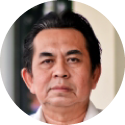 |
Jaran Maluleem |
_______________________________
Week 4 | Lugano, Switzerland
 Intercultural Communication Research Methods
Intercultural Communication Research Methods
This module will present detailed information about intercultural communication research methods and project management. The focus of this module lies in understanding and identifying research methods appropriate to theory and research questions or hypotheses; managing projects.
Objectives
Part 1: Quantitative Research Methods - Prof. Suzanne Suggs Understand the basic principles of quantitative research methods from a social science perspective;
Understand the basic principles of quantitative research methods from a social science perspective; Know the differences between methods for analysis and methods for data collection and the relationship between them;
Know the differences between methods for analysis and methods for data collection and the relationship between them; Know how to formulate research questions, develop research and statistical hypotheses;
Know how to formulate research questions, develop research and statistical hypotheses; Know how to design a quantitative study;
Know how to design a quantitative study; Know how to find and design measurement items;
Know how to find and design measurement items; Have confidence in one’s ability to decide which method is most appropriate for answering research questions.
Have confidence in one’s ability to decide which method is most appropriate for answering research questions.
Objectives
Part 2: Project Management - Prof. Paulo Gonçalves Introduce students to the basic principles, methods and tools for project management;
Introduce students to the basic principles, methods and tools for project management; Understand the theory underlying two project management methods:
Understand the theory underlying two project management methods:
a. Work Breakdown Structure (WBS)
b. Critical Path Method (CPM) Apply the Project Management Framework and understand its limitations;
Apply the Project Management Framework and understand its limitations; Improve students’ ability to structure and manage Intercultural Communication Projects.
Improve students’ ability to structure and manage Intercultural Communication Projects.
Objectives
Part 3: Qualitative Research Methods - Prof. Jolanta Drzewiecka Understand assumptions and evaluation criteria of qualitative research;
Understand assumptions and evaluation criteria of qualitative research; Understand the major qualitative methods: ethnographic observation, interviews, focus groups and textual analysis;
Understand the major qualitative methods: ethnographic observation, interviews, focus groups and textual analysis; Formulate research questions;
Formulate research questions; Design a qualitative study;
Design a qualitative study; Understand data collection process: sampling, organization, recording, and more;
Understand data collection process: sampling, organization, recording, and more; Grasp basic data analysis procedure and presentation of results.
Grasp basic data analysis procedure and presentation of results.
 |
Suzanne L. Suggs |
 |
Paulo Gonçalves |
 |
Jolanta Drzewiecka |
 Culturally-centered Approaches to Development
Culturally-centered Approaches to Development
In this course, we will begin with an overview of the literature on social change communication. We will examine how social change communication is defined, the frameworks of social change communication, and the methodological anchors for communication for social change. This overview will offer the basis for introducing the culture-centered approach to communication for social change, walking through the key concepts of the CCA, the role of social change communication from the global margins, and the transformative power of communication for social change when grounded in the voices of the margins. The course will critically interrogate the dominant ideas of development and situate these ideas in the backdrop of community voices at the global margins.
The focus of the course is to analyze the complex relationship between the concerned actors and stakeholders. Development cooperation and humanitarian action, most often, bring together actors and stakeholders from different cultural backgrounds. Their relationships are complex, not only on account of this cultural diversity but also because of the ‘awkward nature’ of the relations between recipient and donors of official development assistance (ODA) compounded by differences of power and wealth, of historical experiences as well as by different goals and time horizons.
Topics
Part 1 A theoretical framework for social change communication;
A theoretical framework for social change communication; Dominant structures, development communication, and social change;
Dominant structures, development communication, and social change; Cultural anchors for social change communication;
Cultural anchors for social change communication; Voice, subalternity, and erasure;
Voice, subalternity, and erasure; Listening, dialogue, infrastructures of communication;
Listening, dialogue, infrastructures of communication; Projects of social change communication;
Projects of social change communication; Activism and social movements.
Activism and social movements.
Topics
Part 2 The international environment of humanitarian action and international development cooperation;
The international environment of humanitarian action and international development cooperation; The architecture of international development cooperation and of humanitarian action: key concepts, approaches, actors, and instruments;
The architecture of international development cooperation and of humanitarian action: key concepts, approaches, actors, and instruments; Recipient and donors.
Recipient and donors.
 |
Mohan Dutta |
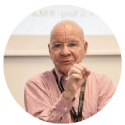 |
Jacques Forster |
_______________________________
Week 5 | Lugano, Switzerland
 Integration: Difference, Diversity, and Dialogue
Integration: Difference, Diversity, and Dialogue
It is a platitude to say that ever-accelerating flows of ideas, commodities and people across the globe are changing the nature of societies forever. The migration of people, real human bodies seems to present the greatest challenges to whatever sense of equilibrium may have prevailed in earlier times. Flows of people add to the complexity of societies and place demands on both the migrants and the hosts at individual and societal levels to think and behave differently in regard to “others.” Evidently, the old ways of engaging human diversity simply will not suffice in a closely-knit, interdependent world in which societal heterogeneity has become the norm and some form of integration has become imperative.
This course will give delegates insight into how we came to think about differences the way we do in the modern era – which differences came to matter, and why -- evaluate some of theories and approaches that have been proposed to engage with diversity, and offer a critical perspective on how we may think in new ways and better equip ourselves for an interrelated future.
Topics Deep ideologies: the construction of difference in the modern social imaginary.
Deep ideologies: the construction of difference in the modern social imaginary. Diversity dimensions, intersections, and unravelling binaries: National status, Race, gender, sexuality, disablilty, coloniality.
Diversity dimensions, intersections, and unravelling binaries: National status, Race, gender, sexuality, disablilty, coloniality. Some theories/approaches to integration: Multiculturalism, “Berry boxes,” Cultural translation; Critical Diversity Literacy.
Some theories/approaches to integration: Multiculturalism, “Berry boxes,” Cultural translation; Critical Diversity Literacy. Diversity in organisations: The challenges get personal.
Diversity in organisations: The challenges get personal.  Dialogue: some principles and limitations.
Dialogue: some principles and limitations.
 |
Melissa Steyn |
The approach of this module is to discuss and contrast different angles to the media’s role in cross-cultural encounters in society: insider perspectives and outsider perspectives; aspects of media production and journalism, and the changes that this field is currently facing; the change in media landscapes, and the changing functional aspects of media use in different cultural settings including the recent representations of migration into Europe.
During the course we work to detect, identify and analyse mechanisms of inclusion and exclusion of culturally distinct groups. We also look at research on how the media address such situations. To broaden the spectrum, the analysis covers a multitude of different types of encounters: how different media represent and affect ethnicity; religion; immigrant- and diasporic communities; linguistic diversity and minority languages, and the possibilities and problems that come with new media technologies.
The particular tasks of journalism with respect to conceptualizing the world, and in creation of self-identification and social competence are discussed against practical examples from different cultural settings. Attention is given to how media works in representing the cultural “self” and “others”, based on the literature distributed before the course. The role of the media is discussed against examples of good and bad practice.
Topics The predicament of cultures in a mediatized society;
The predicament of cultures in a mediatized society; The role of journalism and media in the evolution of migration and intercultural relations;
The role of journalism and media in the evolution of migration and intercultural relations; Media and (national, ethnic, linguistic, religious …) minorities;
Media and (national, ethnic, linguistic, religious …) minorities; New forms of media and journalism and their relations to social networks, cultures and sub-cultures;
New forms of media and journalism and their relations to social networks, cultures and sub-cultures; Useful practices in intercultural communication.
Useful practices in intercultural communication.
|
|
Tom Moring |
_______________________________
Week 6 | Lausanne, Bern and Geneva, Switzerland
After a general introduction to human rights, emphasis will be placed on the limits to fundamental freedoms and on the legal mechanisms that ensure respect for these freedoms at national and international level. Human rights (human rights) and / or "rights of cultures"; The legal choices of the State in the face of multiculturalism; Citizenship and integration policies today. In the second part, the course will concentrate on three guarantees that are essential today in a multicultural context. Freedom of religion in particular, the right to express one's religious beliefs and proselytism and the denominational neutrality of the state; Freedom of language, in particular, the status of official languages, and the conflict between freedom of language and the principle of territoriality; Equal treatment, in particular, the prohibition of discrimination.
Topics
Part 1
After a general introduction to human rights, emphasis will be placed on the limits to fundamental freedoms and on the legal mechanisms that ensure respect for these freedoms at national and international level. Human rights (human rights) and / or "rights of cultures";
Human rights (human rights) and / or "rights of cultures"; The legal choices of the State in the face of multiculturalism;
The legal choices of the State in the face of multiculturalism; Citizenship and integration policies today.
Citizenship and integration policies today.
Topics
Part 2
In the second part, the course will concentrate on three guarantees that are essential today in a multicultural context.  Freedom of religion, in particular, the right to express one's religious beliefs and proselytism and the denominational neutrality of the state;
Freedom of religion, in particular, the right to express one's religious beliefs and proselytism and the denominational neutrality of the state; Freedom of language, in particular, the status of official languages, and the conflict between freedom of language and the principle of territoriality;
Freedom of language, in particular, the status of official languages, and the conflict between freedom of language and the principle of territoriality; Equal treatment, in particular, the prohibition of discrimination.
Equal treatment, in particular, the prohibition of discrimination.
|
|
Bertil Cottier Amnesty International |
The course aims at familiarizing the students with the struggles over global, regional and state power, international conflicts, and global issues by providing a variety of historical, political, social, cultural and economic factors.
Objectives To provide an overview of the main stress factors affecting the world community and of the main characteristics of international relations;
To provide an overview of the main stress factors affecting the world community and of the main characteristics of international relations; To analyze the role of international organizations and NGOs in this evolution;
To analyze the role of international organizations and NGOs in this evolution; To familiarize the participants with recent endeavors to define and promote new norms to protect the life and dignity of individuals and, inter alia, the concept of human security;
To familiarize the participants with recent endeavors to define and promote new norms to protect the life and dignity of individuals and, inter alia, the concept of human security; To raise the awareness of the relevance and relative importance of cultural and political factors in the different approaches to those issues;
To raise the awareness of the relevance and relative importance of cultural and political factors in the different approaches to those issues; To shed light on the evolution of the key concept of state sovereignty and on the opportunities, obstacles, and dilemmas linked to the implementation of human rights norms.
To shed light on the evolution of the key concept of state sovereignty and on the opportunities, obstacles, and dilemmas linked to the implementation of human rights norms.
Topics Introduction to IGOs (international governmental organizations) and INGOs (international non-governmental organizations);
Introduction to IGOs (international governmental organizations) and INGOs (international non-governmental organizations); IGOs and INGOs in conflict resolution and sustainable development;
IGOs and INGOs in conflict resolution and sustainable development; International relations at the beginning of the 21st century;
International relations at the beginning of the 21st century; International actors and the challenge of global governance;
International actors and the challenge of global governance; Developing new norms in the field of human security: the role of states, international organizations, and NGOs;
Developing new norms in the field of human security: the role of states, international organizations, and NGOs; Challenges of global and state security frameworks.
Challenges of global and state security frameworks.
Workshops The clash of civilization;
The clash of civilization; Universalism and cultural relativism in practice:
Universalism and cultural relativism in practice: The promotion of human rights and human security values: opportunities, obstacles, and dilemmas.
The promotion of human rights and human security values: opportunities, obstacles, and dilemmas.
|
|
Jacques Forster |
_______________________________
Week 7 | Neuchâtel, Switzerland
 Migration as a Challenge to Democracy
Migration as a Challenge to Democracy
In five units, we introduce participants to relevant social theory, present cutting-edge research findings, and discuss the applications and implications in various hands-on exercises. The module begins with how humans perceive the world and how immigration plays an important role in understanding and classifying the everyday. We then explore the consequences of this with regard to political representation, exclusion, the media, and right-wing populism to underline how migration poses a challenge to democracy.
Topics Social relations;
Social relations; Political representation;
Political representation; Social exclusion;
Social exclusion; The role of the media;
The role of the media; Right-wing populism.
Right-wing populism.
 |
Gianni D’Amato |
 |
Ruedin Didier |
 Policies and Processes of Integration in Society
Policies and Processes of Integration in Society
This module addresses macro (i.e. society) meso (i.e. community) and micro (i.e. individual and family) processes of integration. In order to set the scenery of such processes, the module begins by studying diversity of migrant population and integration policies in Europe; this allows locating the Swiss experience in the broader European picture. Moreover, it outlines the main theoretical approaches to integration in the scientific literature in order to provide a common background for the study of integration processes. More generally, the module shows the dynamic of ethnic boundaries at play in integration processes. Finally, the module tackles the issue of the interplay between processes of integration and migrants’ transnational practices.
Topics Diversity in migration and integration policies;
Diversity in migration and integration policies; Theoretical frames for integration processes;
Theoretical frames for integration processes; Structural integration: a quantitative approach;
Structural integration: a quantitative approach; Intergenerational social mobility: resource mobilization, strutural barriers and ethnic boundaries;
Intergenerational social mobility: resource mobilization, strutural barriers and ethnic boundaries; Integration and transnationalism.
Integration and transnationalism.
 |
Rosita Fibbi |
_______________________________
Week 8 | Beirut, Lebanon
 Contemporary Governance of International Migration
Contemporary Governance of International Migration
The first Unit is devoted to the post Berne Initiative global framework and initiatives in the governance of migration as the context for the EU free movement of persons. The following unit focuses on recent developments in the international framework of refugee and IDP protection in Switzerland, the Middle East and Europe. Unit 3 looks at the recent shift in research from a policy oriented to a migrant informed perspective of decision making in migration.
The next section discusses border controls, visa policies and cross border services as well as smuggling and human trafficking, which are often purposefully confused in public debates. Unit 5 focuses on particularly vulnerable migrant groups and investigates the underlying factors and structures that create unequal power relations and dependency, how migration management regimes of control and enforcement are practiced and how they shape individual irregular migrants’ experiences in diverse ways. On the side of policy responses, the so-called durable solutions – local integration, return, resettlement – are addressed with particular interest being paid to the reactivation of resettlement regimes in Switzerland and EU countries (unit 6).
Finally, we focus on the sub-state level and show the implications migration has on the regional and local level (unit 7). In particular, we analyse the challenges faced by minority regions, where new diversity stemming from migration encounters historical linguistic, religious and cultural diversity.
Topics Towards global governance of migration;
Towards global governance of migration; International governance of refugee and IDPs;
International governance of refugee and IDPs; Determinants of (refugee) migration movements;
Determinants of (refugee) migration movements; From migrant smuggling to trafficking in persons;
From migrant smuggling to trafficking in persons; Vulnerability and migrations;
Vulnerability and migrations; International refugee resettlemen and relocation in within the EU;
International refugee resettlemen and relocation in within the EU; Migration to and within minority territories.
Migration to and within minority territories.
 |
Denise Efionayi-Mäder |
 |
Gianni D’Amato |
 |
Verena Wishtaler |
The role of culture and context in shaping health meanings, values and practices, and the linkages of these practices to health and wellbeing in migration and refugee contexts.
Topics Theoretical debates on forced migration and humanitarian responses;
Theoretical debates on forced migration and humanitarian responses; Understanding historical and current refugee experiences in the Arab region;
Understanding historical and current refugee experiences in the Arab region; Practices and experiences of migrants and refugees in healthcare settings;
Practices and experiences of migrants and refugees in healthcare settings; Impact of legal, social, and economic factors on the health and well-being of refugees and internally displaced populations.
Impact of legal, social, and economic factors on the health and well-being of refugees and internally displaced populations.
*This module will be taught by the faculty of the American University of Beirut.
_______________________________
Week 9 | Lugano, Switzerland
 Multiculturalism and Integration
Multiculturalism and Integration
The course aims to present and discuss the sociological and political philosophy issues related to multiculturalism. It starts from an apparently distant phenomenon, but which weighs heavily on these stakes, the rise of individualism and personal subjectivity in contemporary societies. It situates the issue in what is the major global change, globalization, and will invite the participants to "think global." And in the face of these phenomena, multiculturalism has been an institutional and philosophical response since the end of the 1960s. The content, the history, as well as the limits of this response will be discussed in light of the question whether intercultural dialogue could be another answer. The module will also address specific guidelines and measures for integration.
Objectives Address diversity management as a form of public policy, showing that it can be addressed with the tools of policy selection, design, and evaluation;
Address diversity management as a form of public policy, showing that it can be addressed with the tools of policy selection, design, and evaluation; Investigate the concept of 'language regime' and discuss the benefits and costs of multilingualism, addressing the ways issues related to translation, interpreting, the use of a 'lingua franca,' and other strategies s 'intercompréhension';
Investigate the concept of 'language regime' and discuss the benefits and costs of multilingualism, addressing the ways issues related to translation, interpreting, the use of a 'lingua franca,' and other strategies s 'intercompréhension'; Develop the concept of tolerability, focusing on establishing the latter's empirical validity through a quantitative approach.
Develop the concept of tolerability, focusing on establishing the latter's empirical validity through a quantitative approach.
Topics Philosophical and political challenges of monoculturalism and multiculturalism;
Philosophical and political challenges of monoculturalism and multiculturalism; Multiculturalism: theory and practice;
Multiculturalism: theory and practice; Managing differences and "intercultural conflicts";
Managing differences and "intercultural conflicts"; Diversity and multilingual public policy.
Diversity and multilingual public policy.

|
Michel Wieviorka |
 |
Susanne Rodemeier |
 Psychology of Prejudice and Stereotyping
Psychology of Prejudice and Stereotyping
Psychology offers a nuanced understanding of the link between the individual, emotion, cognition, and culture. How are the "cultural" dimensions of human behavior taken into account in psychology? What is the place of culture in this discipline? What can be the contributions of psychology to the understanding of intercultural communication? The theoretical contributions will be brought through numerous examples and activities so that the participants can establish links with their practices and concerns and develop a "psychosocial and cultural" approach to intercultural communication.
Topics Psychology, individual and culture;
Psychology, individual and culture; Prejudice and stereotyping.
Prejudice and stereotyping.
 |
Nathalie Müller Mirza |
Each participant will present a detailed analysis of a personally experienced (or sufficiently known) situation by applying concepts and ideas learned in the current module. The presentation should include a diagnosis of the situation as well as solutions or suggestions for improvement. Participants are encouraged to select situations they have experienced in their professional practice.
The Thesis/Field Project is an opportunity to demonstrate mastery of new knowledge and is thus a crucial and culminating part of the educational process. A Thesis Project aims to apply and extend theoretical knowledge. A Field Project uses theoretical knowledge to improve or enrich practice. Each participant will choose a topic that relates to his or her profession and present it for approval to the MIC Academic Director. Each participant will then develop a proposal/plan and carry out the project under the direction of the MIC Academic Director and a Project Adviser selected from among the MIC professors. Participants are expected to complete their projects no later than three months after the last module of the program.
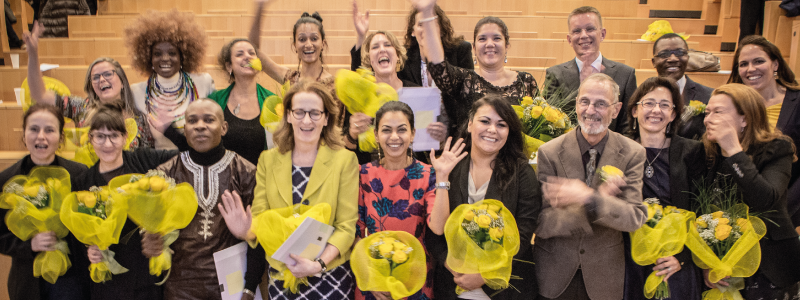
TUITION FEE
Diploma of Advanced Studies - DAS (30 ECTS): CHF 13'000
Certificate of Advanced Studies - CAS (15 ECTS): CHF 6'500
One DAS module (2.5 ECTS) CHF 1'200
ACCREDITATION
USI Università della Svizzera italiana is one of 12 universities under the Swiss university system, coordinated by the Rectors’ Conference of the Swiss Universities (swissuniversitites). swissuniversities represents all 12 Swiss universities and maintains relationships with other accredited universities outside Switzerland. As a recognized university that is part of the public system, the degree-granting body of the MIC is USI Università della Svizzera italiana.
To ensure international recognition, in 2002 USI became the first Swiss university to adopt the Bologna Reform and the European Credit Transfer and Accumulation System (ECTS). The Bologna Declaration mandates that all taught courses and coursework are to be quantified in ECTS points. The ECTS guarantees that credits are wholly compatible and transferable within and across the broader European university system.






